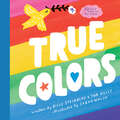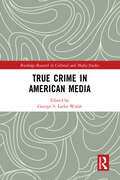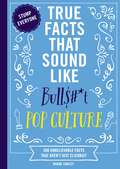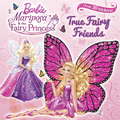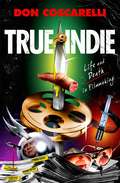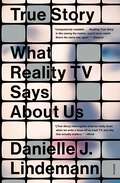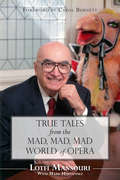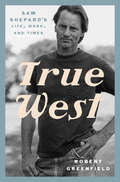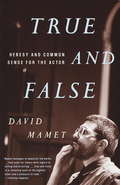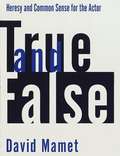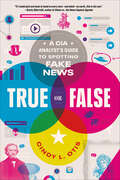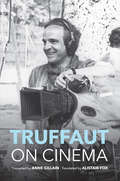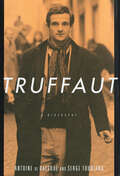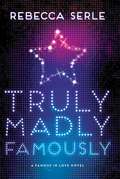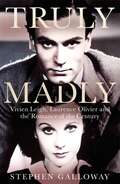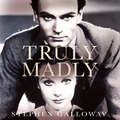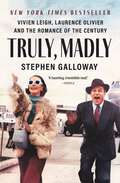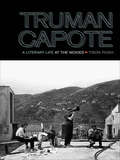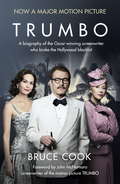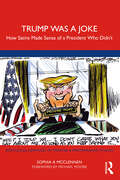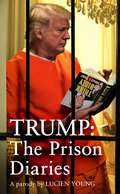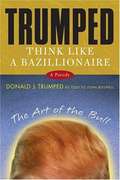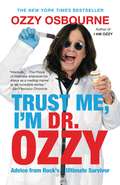- Table View
- List View
True Colors
by Tom Kelly Billy SteinbergBased on the hit song, this beautiful book is the perfect gift for anyone who needs to be reminded of the importance of being their true selves.Through reassuring lyrics that encourage us to be our true selves, "True Colors" has become a beloved song worldwide since its release in 1986. Now, for the first time ever, this inspiring and iconic song is in book form accompanied by gorgeous illustrations, and perfectly packaged with a ribbon enclosure.Ideal for any age--and as a gift anytime during the year--this book about having confidence in yourself is sure to be a huge comfort.
True Crime in American Media (Routledge Research in Cultural and Media Studies)
by Larke-Walsh, George S.This book explores contemporary American true crime narratives across various media formats. It dissects the popularity of true crime and the effects, both positive and negative, this popularity has on perceptions of crime and the justice system in contemporary America. As a collection of new scholarship on the development, scope, and character of true crime in twenty-first century American media, analyses stretch across film, streaming/broadcast TV, podcasts, and novels to explore the variety of ways true crime pervades modern culture. The reader is guided through a series of interconnected topics, starting with an examination of the contemporary success of true crime, the platforms involved, the narrative structures and engagement with audiences, moving on to debates on representation and the ethics involved in portraying both victims and perpetrators of crime within the genre. This collection provides new critical work on American true crime media for all interested readers, and especially scholars and students in the humanities and social sciences. It offers a significant area of research in social sciences, criminology, media, and English Literature academic disciplines.
True Facts That Sound Like Bull$#*t: 500 Unbelievable Facts That Aren’t Just Clickbait
by Shane CarleyProve you are the most cultured person in the room with 500 true trivia facts about pop culture. These facts are so absurd some might even say that they sound like bull$#*t! Explore the scandalous and the secretive in this all access addition to the True Facts series that spills all the gossip of your favorite celebrities, movies, music, and more. Give the gift that keeps giving to friends, family, fathers, or grads and test your knowledgeKnowledge is power! Crush the competition at trivia night or start the most interesting conversation ever with real facts that are hard to believe. This astonishing collection of facts is so wild and unexpected, it seems like pure fiction. True Facts That Sound Like Bull$#*t: Pop Culture is your all-access pass to uncovering the craziest stories, facts, and trivia about your favorite celebrities, movies, music, and more. From the unthinkable behind-the-scenes tales of Hollywood to the most surprising celebrity quirks, this compendium dives deep into the heart of pop culture&’s most bewildering mysteries and phenomena. Whether you&’re a pop culture aficionado, a trivia enthusiast, or simply in search of a good laugh, this book is an essential addition to your collection.Inside you&’ll discover facts such as:The iconic scream of the TIE fighters in Star Wars was actually made by combining an elephant's call with car tire screeches on wet pavement.Before hitting it big, Elvis Presley was a truck driver, and Jim Carrey once worked as a janitor.The famous "I'll be back" line from The Terminator was almost "I will return."Michael Jackson attempted to buy Marvel Comics in the 1990s because he wanted to play Spider-Man in his own produced movie.The first YouTube video was uploaded by co-founder Jawed Karim, featuring him at the San Diego Zoo and titled "Me at the zoo."Strap in for an exhilarating ride through the wildest, most peculiar, and unbelievably true corners of pop culture. Your view of the entertainment world will never be the same!
True Fairy Friends (Barbie)
by Mary Man-Kong Random HouseGirls ages 3-7 will love this full-color storybook based on the latest Barbie movie, releasing on DVD and Blu-ray in fall 2013.
True Indie: Life and Death in Filmmaking
by Don CoscarelliFrom Don Coscarelli, the celebrated filmmaker behind many cherished cult classics comes a memoir that's both revealing autobiography and indie film crash course.Best known for his horror/sci-fi/fantasy films including Phantasm, The Beastmaster, Bubba Ho-tep and John Dies at the End, now Don Coscarelli’s taking you on a white-knuckle ride through the rough and tumble world of indie film.Join Coscarelli as he sells his first feature film to Universal Pictures and gets his own office on the studio lot while still in his teens. Travel with him as he chaperones three out-of-control child actors as they barnstorm Japan, almost drowns actress Catherine Keener in her first film role, and transforms a short story about Elvis Presley battling a four thousand year-old Egyptian mummy into a beloved cult classic film.Witness the incredible cast of characters he meets along the way from heavy metal god Ronnie James Dio to first-time filmmakers Quentin Tarantino and Roger Avary. Learn how breaking bread with genre icons Tobe Hooper, John Carpenter and Guillermo Del Toro leads to a major cable series and watch as he and zombie king George A. Romero together take over an unprepared national network television show with their tales of blood and horror.This memoir fits an entire film school education into a single book. It’s loaded with behind-the-scenes stories: like setting his face on fire during the making of Phantasm, hearing Bruce Campbell’s most important question before agreeing to star in Bubba Ho-tep, and crafting a horror thriller into a franchise phenomenon spanning four decades. Find out how Coscarelli managed to retain creative and financial control of his artistic works in an industry ruled by power-hungry predators, and all without going insane or bankrupt.True Indie will prove indispensable for fans of Coscarelli’s movies, aspiring filmmakers, and anyone who loves a story of an underdog who prevails while not betraying what he believes.
True Love
by Jennifer LopezIn Jennifer Lopez's first ever book, True Love, she explores one of her life's most defining periods--the transformative two-year journey of how, as an artist and a mother, she confronted her greatest challenges, identified her biggest fears, and ultimately emerged a stronger person than she's ever been. Guided by both intimate and electrifying photographs, True Love an honest and revealing personal diary with hard-won lessons and heartfelt recollections and an empowering story of self-reflection, rediscovery, and resilience. Completely full-color, with photos throughout and lavishly designed, True Love is a stunning and timeless book that features more than 200 never-before-seen images from Lopez's personal archives, showing candid moments with her family and friends and providing a rare behind-the-scenes look at the life of a pop music icon travelling, rehearsing, and performing around the world.
True Story: What Reality TV Says About Us
by Danielle J. LindemannNamed a Best Nonfiction Book of 2022 by EsquireA sociological study of reality TV that explores its rise as a culture-dominating medium—and what the genre reveals about our attitudes toward race, gender, class, and sexualityWhat do we see when we watch reality television?In True Story: What Reality TV Says About Us, the sociologist and TV-lover Danielle J. Lindemann takes a long, hard look in the “funhouse mirror” of this genre. From the first episodes of The Real World to countless rose ceremonies to the White House, reality TV has not just remade our entertainment and cultural landscape (which it undeniably has). Reality TV, Lindemann argues, uniquely reflects our everyday experiences and social topography back to us. Applying scholarly research—including studies of inequality, culture, and deviance—to specific shows, Lindemann layers sharp insights with social theory, humor, pop cultural references, and anecdotes from her own life to show us who we really are.By taking reality TV seriously, True Story argues, we can better understand key institutions (like families, schools, and prisons) and broad social constructs (such as gender, race, class, and sexuality). From The Bachelor to Real Housewives to COPS and more (so much more!), reality programming unveils the major circuits of power that organize our lives—and the extent to which our own realities are, in fact, socially constructed.Whether we’re watching conniving Survivor contestants or three-year-old beauty queens, these “guilty pleasures” underscore how conservative our society remains, and how steadfastly we cling to our notions about who or what counts as legitimate or “real.” At once an entertaining chronicle of reality TV obsession and a pioneering work of sociology, True Story holds up a mirror to our society: the reflection may not always be pretty—but we can’t look away.
True Tales from the Mad, Mad, Mad World of Opera
by Carol Burnett Lotfi Mansouri Mark HernandezAn insider’s view of the opera world from one of its greatest figures. Everything about opera is larger than life, but the bigger the art form, the bigger the potential for disaster. When things go wrong at the opera house, they really go wrong. No one has a greater or more intimate knowledge of such moments than Lotfi Mansouri. Over the course of a career that has spanned five decades, Mansouri has directed nearly 500 productions at major opera houses around the globe. Mansouri has gathered a collection of discrete vignettes that recount unforgettable and revealing moments at the opera as personally experienced or witnessed by him. From unbelievable snafus to unfortunate mishaps to astounding coincidences, these vignettes feature some of the biggest names in opera, as well as prominent figures from politics and more. From the hilarious to the bizarre, this is a reader-friendly look at what is often thought of as an overly serious, even mysterious form of art.
True West: Sam Shepard's Life, Work, and Times
by Robert GreenfieldA revelatory biography of the world-famous playwright and actor Sam Shepard, whose work was matched by his equally dramatic life, including collaborations with the Rolling Stones and Bob Dylan as well as tumultuous relationships with Patti Smith, Joni Mitchell, and Jessica Lange&“Robert Greenfield&’s vivid, clear-eyed biography captures both the man and the myth—and, perhaps most important, the writer, who sang a new kind of song in American theater.&”—Michael Schulman, author of Her Again: Becoming Meryl Streep True West: Sam Shepard&’s Life, Work, and Times is the story of an American icon, a lasting portrait of Sam Shepard as he really was, revealed by those who knew him best. This sweeping biography charts Shepard&’s long and complicated journey from a small town in Southern California to become an internationally known playwright and movie star. The only son of an alcoholic father, Shepard crafted a public persona as an authentic American archetype: the loner, the cowboy, the drifter, the stranger in a strange land. Despite his great critical and financial success, he seemed, like so many of his characters, to remain perpetually dispossessed.Much like Robert Greenfield&’s biographies of Jerry Garcia and Timothy Leary, this book delves deeply into Shepard&’s life as well as the ways in which his work illuminates it. True West takes readers through the world of downtown theater in Lower Manhattan in the early sixties; the jazz scene at New York&’s Village Gate; fringe theater in London in the seventies; Bob Dylan&’s legendary Rolling Thunder tour; the making of classic films like Zabriskie Point, Days of Heaven, and The Right Stuff; and Broadway productions of Buried Child, True West, and Fool for Love.For this definitive biography, Greenfield interviewed dozens of people who knew Shepard well, many of whom had never before spoken on the record about him. While exploring his relationships with Patti Smith, Bob Dylan, Joni Mitchell, and Jessica Lange across the long arc of his brilliant career, Greenfield makes the case for Shepard as not just a great American writer but a unique figure who first brought the sensibility of rock &’n&’ roll to theater.
True and False
by David MametInvent nothing, deny nothing, speak up, stand up, stay out of school. With these words, one of our most brilliantly iconoclastic playwrights takes on the art of profession of acting, in a book that is as shocking as it is practical, as witty as it is instructive, and as irreverent as it is inspiring. Acting schools, "interpretation," "sense memory," "The Method"--David Mamet takes a jackhammer to the idols of contemporary acting, while revealing the true heroism and nobility of the craft. He shows actors how to undertake auditions and rehearsals, deal with agents and directors, engage audiences, and stay faithful to the script, while rejecting the temptations that seduce so many of their colleagues. Bracing in its clarity, exhilarating in its common sense, True and False is invaluable.From the Trade Paperback edition.
True and False: Heresy and Common Sense for the Actor
by David MametA guide into acting careers for aspirant actors, it helps in judging a role, approaching the part, working with the dramatist, going through auditions, and the industry in general.
True or False: A CIA Analyst's Guide to Spotting Fake News
by Cindy L. Otis"If I could pick one book to hand to every teen—and adult—on earth, this is the one. True or False is accessible, thorough, and searingly honest, and we desperately needed it." —Becky Albertalli, author of Simon vs. the Homo Sapiens Agenda A former CIA analyst unveils the true history of fake news and gives readers tips on how to avoid falling victim to it in this highly designed informative YA nonfiction title. "Fake news" is a term you’ve probably heard a lot in the last few years, but it’s not a new phenomenon. From the ancient Egyptians to the French Revolution to Jack the Ripper and the founding fathers, fake news has been around as long as human civilization. But that doesn’t mean that we should just give up on the idea of finding the truth.In True or False, former CIA analyst Cindy Otis will take readers through the history and impact of misinformation over the centuries, sharing stories from the past and insights that readers today can gain from them. Then, she shares lessons learned in over a decade working for the CIA, including actionable tips on how to spot fake news, how to make sense of the information we receive each day, and, perhaps most importantly, how to understand and see past our own information biases, so that we can think critically about important issues and put events happening around us into context.True or False includes a wealth of photo illustrations, informative inserts, and sidebars containing interesting facts and trivia sure to engage readers in critical thinking and analysis.This title has common core connections.
Truffaut on Cinema
by Anne Gillain“The writings reveal a Truffaut who was as incisive and direct in assessing his own work as he was in assessing the work of other directors.” —ChoiceBetween 1959 and 1984, French film director François Truffaut was interviewed over three hundred times. Each interview offers critical insight into the genesis of Truffaut’s films as he shares the sources of his inspiration, the choice of his themes, and the development of his screenplays. In addition, Truffaut discusses his relationships with collaborators, actors, and the circumstances surrounding the shooting of each film.These texts, originally assembled by Anne Gillain and published in French in 1988, are presented here in a montage arranged chronologically by film. This compilation includes an impressive array of reflections on cinema as an art form. Truffaut defines the aims and practices of the French New Wave, comparing their efforts to the films made by their predecessors and including comments that encompass the entire history of cinema. Truffaut on Cinema provides commentary on contemporary events, a wealth of biographical information, and Truffaut’s own artistic itinerary.
Truffaut: A Biography
by Antoine De Baecque Serge ToubianaOne of the most celebrated filmmakers of all time, Francois Truffaut was an intensely private individual who cultivated the public image of a man completely consumed by his craft. But his personal story—from which he drew extensively to create the characters and plots of his films—is itself an extraordinary human drama. Now, with captivating immediacy, Antoine de Baecque and Serge Toubiana give us the definitive story of this beloved artist. They begin with the unwanted, mischievous child who learned to love movies and books as an escape from sadness and confusion: as a boy, Francois came to identify with screen characters and to worship actresses. Following his early adult years as a journalist, during which he gained fame as France's most iconoclastic film critic, the obsessive prodigy began to make films of his own, and before he was thirty, notched the two masterpieces The 400 Blows and Jules and Jim. As Truffaut's dazzling body of work evolves, in the shadow of the politics of his day, including the student uprisings of 1968, we watch him learning the lessons of his masters Fellini and Hitchcock. And we witness the progress of his often tempestuous personal relationships, including his violent falling-out with Jean-Luc Godard (who owed Truffaut the idea for Breathless) and his rapturous love affairs with the many glamorous actresses he directed, among them Jacqueline Bisset and Jeanne Moreau. With Fanny Ardant, Truffaut had a child only thirteen months before dying of a brain tumor at the age of fifty-two.Here is a life of astonishing emotional range, from the anguish of severe depression to the exaltation of Oscar victory. Based on unprecedented access to Truffaut's papers, including notes toward an unwritten autobiography, de Baecque and Toubiana's richly detailed work is an incomparably authoritative revelation of a singular genius.
Truly Madly Famously (Famous in Love #2)
by Rebecca SerleSoon to be a series on Freeform, formerly ABC Family, starring Bella Thorne. "A must-read for anyone curious about life and love behind the scenes."--Bella Thorne, actor and author of Autumn Falls, on Famous in LoveLights, camera, love!After being plucked from obscurity, Hollywood's newest It Girl, Paige Townsen, has a blockbuster film to her name and Rainer Devon on her arm. But being half of the world's most famous couple comes with a price. No matter where Paige goes, someone is always watching. Soon she finds herself dodging photographers; hiding her feelings for her other costar, Jordan Wilder; and weathering tabloid scandals that threaten to tear her and Rainer apart--and end her career as quickly as it began.As she navigates her new L.A. life in this exciting sequel to Famous in Love, Paige finds that she doesn't know who to trust: Old friends could be betraying her secrets, and new friends are keeping secrets of their own.
Truly Madly: Vivien Leigh, Laurence Olivier and the Romance of the Century
by Stephen GallowayA sweeping and heartbreaking Hollywood biography about the passionate, turbulent marriage of Laurence Olivier and Vivien Leigh.As seen in the Daily Mail and Mail on SundayIn 1934, a friend brought fledgling actress Vivien Leigh to see Theatre Royal, where she would first lay eyes on Laurence Olivier in his brilliant performance as Anthony Cavendish. That night, she confided to a friend, he was the man she was going to marry. There was just one problem: she was already married-and so was he.TRULY, MADLY is the biography of a marriage, a love affair that still captivates millions, even decades after both actors' deaths. Vivien and Larry were two of the first truly global celebrities - their fame fueled by the explosive growth of tabloids and television, which helped and hurt them in equal measure. They seemed to have it all and yet, in their own minds, they were doomed, blighted by her long-undiagnosed mental-illness, which transformed their relationship from the stuff of dreams into a living nightmare.Through new research, including exclusive access to previously unpublished correspondence and interviews with their friends and family, author Stephen Galloway takes readers on a bewitching journey. He brilliantly studies their tempestuous liaison, one that took place against the backdrop of two world wars, the Golden Age of Hollywood and the upheavals of the 1960s - as they struggled with love, loss and the ultimate agony of their parting.
Truly Madly: Vivien Leigh, Laurence Olivier and the Romance of the Century
by Stephen GallowayA sweeping and heartbreaking Hollywood biography about the passionate, turbulent marriage of Laurence Olivier and Vivien Leigh.A New York Times bestsellerAs seen in the Daily Mail and Mail on SundayIn 1934, a friend brought fledgling actress Vivien Leigh to see Theatre Royal, where she would first lay eyes on Laurence Olivier in his brilliant performance as Anthony Cavendish. That night, she confided to a friend, he was the man she was going to marry. There was just one problem: she was already married-and so was he.TRULY, MADLY is the biography of a marriage, a love affair that still captivates millions, even decades after both actors' deaths. Vivien and Larry were two of the first truly global celebrities - their fame fueled by the explosive growth of tabloids and television, which helped and hurt them in equal measure. They seemed to have it all and yet, in their own minds, they were doomed, blighted by her long-undiagnosed mental-illness, which transformed their relationship from the stuff of dreams into a living nightmare.Through new research, including exclusive access to previously unpublished correspondence and interviews with their friends and family, author Stephen Galloway takes readers on a bewitching journey. He brilliantly studies their tempestuous liaison, one that took place against the backdrop of two world wars, the Golden Age of Hollywood and the upheavals of the 1960s - as they struggled with love, loss and the ultimate agony of their parting.
Truly, Madly: Vivien Leigh, Laurence Olivier, and the Romance of the Century
by Stephen GallowayNAMED A BEST BOOK OF THE YEAR BY THE WASHINGTON POST A New York Times Bestseller "A "well rounded and entertaining" (New York Times) Hollywood biography about the passionate, turbulent marriage of Laurence Olivier and Vivien Leigh. In 1934, a friend brought fledgling actress Vivien Leigh to see Theatre Royal, where she would first lay eyes on Laurence Olivier in his brilliant performance as Anthony Cavendish. That night, she confided to a friend, he was the man she was going to marry. There was just one problem: she was already married—and so was he. TRULY, MADLY is the biography of a marriage, a love affair that still captivates millions, even decades after both actors' deaths. Vivien and Larry were two of the first truly global celebrities – their fame fueled by the explosive growth of tabloids and television, which helped and hurt them in equal measure. They seemed to have it all and yet, in their own minds, they were doomed, blighted by her long-undiagnosed mental-illness, which transformed their relationship from the stuff of dreams into a living nightmare. Through new research, including exclusive access to previously unpublished correspondence and interviews with their friends and family, author Stephen Galloway takes readers on a bewitching journey. He brilliantly studies their tempestuous liaison, one that took place against the backdrop of two world wars, the Golden Age of Hollywood and the upheavals of the 1960s — as they struggled with love, loss and the ultimate agony of their parting.
Truman Capote: A Literary Life at the Movies (The South on Screen)
by Tison PughThe author of Queer Chivalry presents a biographical study of the celebrity writer &“rich with insight into [his] literary and cinematic achievements&” (Publishers Weekly). Truman Capote&’s legacy is in many ways defined by his complex relationship with Hollywood. In Truman Capote: A Literary Life at the Movies, Tison Pugh explores the author and his literature through a cinematic lens, weaving elements of Capote&’s biography—including his flamboyant public persona and his friendships and feuds with notable stars—with critical analysis of the films, screenplays, and adaptations of his works. Capote&’s masterful prose made him an iconic twentieth century author, and his screenplays, including Beat the Devil, Indiscretion of an American Wife, and The Innocents, allowed him to collaborate with such Hollywood heavyweights as Humphrey Bogart, John Huston, and David O. Selznick. But the beloved and acclaimed adaptations of his literature, most notably Breakfast at Tiffany&’s and In Cold Blood, undercut his daring treatment of homosexuality in favor of heterosexual romance. Pugh demonstrates how Capote&’s gay southern identity influenced perceptions of his literature and its adaptations. Illuminating Capote&’s successes and disappointments in the film industry, Pugh delivers a revealing and nuanced portrait of the author&’s literary life.
Trumbo: A biography of the Oscar-winning screenwriter who broke the Hollywood blacklist - Now a major motion picture
by Bruce CookNOMINATED FOR OSCAR, BAFTA AND GOLDEN GLOBE AWARDS (BRYAN CRANSTON, BEST ACTOR)Dalton Trumbo was the central figure of the infamous 'Hollywood Ten,' the screenwriters who, during the McCarthy era, were charged by the House Committee on Un-American Acitivities for their associations with the Communist Party. Due to their refusal to cooperate during the investigation, Trumbo and his fellow screenwriters were declared in contempt of Congress and were ultimately blacklisted from Hollywood and some were even jailed. Although Trumbo was one of several hundred writers, directors, producers, and actors who were deprived of the opportunity to work in the motion picture industry from 1947 to 1960, he won an Oscar under the pseudonym Robert Rich for The Brave One in 1956, and he was the first to see his name on the big screen again in 1960 with Exodus, one of the year's biggest movies.All his life Trumbo was a radical of the homegrown, independent variety. From his early days in Colorado, where his grandfather was a county sheriff, to his time in Los Angeles, where he organized a bakery strike and was even a bootlegger, to his time as an author when he wrote the powerful pacifist novel Johnny Got His Gun, to his heyday as a top-paid (and frequently broke) Hollywood screenwriter-where his credits include Roman Holiday, Spartacus, Papillon, Lonely Are the Brave, Thirty Seconds Over Tokyo, The Brave One, and Kitty Foyle-his life rivaled anything he had created.Written with Dalton Trumbo's full cooperation, at a moment when he himself did not know how much time he had left, Trumbo is a candid tale of a colorful figure who was at the epicenter of a tumultuous period in recent American history.
Trump Was a Joke: How Satire Made Sense of a President Who Didn’t (Routledge Advances in Theatre & Performance Studies)
by Sophia A McclennenWritten by a scholar of satire and politics, Trump Was a Joke explains why satire is an exceptional foil for absurd political times and why it did a particularly good job of making sense of Trump. Covering a range of comedic interventions, Trump Was a Joke analyzes why political satire is surprisingly effective at keeping us sane when politics is making us crazy. Its goal is to highlight the unique power of political satire to encourage critical thinking, foster civic action, and further rational debate in moments of political hubris and hysteria. The book has been endorsed by Bassem Youssef, who has been referred to as the “Jon Stewart of Egypt,” and Srdja Popovic, author of Blueprint for Revolution, who used satirical activism to bring down Serbian dictator Slobodan Milosevic. With a foreword by award-winning filmmaker, satirist, and activist Michael Moore, this study will be of interest to readers who follow politics and enjoy political comedy and will appeal to the communications, comedy studies, media studies, political science, rhetoric, cultural studies, and American studies markets.
Trump: MAKE PRISON GREAT AGAIN with the funniest satire of the year
by Lucien YoungIn this explosive first-person account of swapping the White House for the Big House, Donald Trump aims to Make Prison Great Again.MARCH 31It's been two weeks since they put me in The Hole. Very unfair! No-one is treated as unfairly as Trump. Many people say that solitary confinement is a kind of torture. I'm not so sure. I'm getting to spend a lot of time with my favourite person in the world. I say to him: "Mr President, remember when you met Bo Derek at the PGA Tour Championship? She had the hots for you, believe me." And he'll reply: "I agree, Mr President. Also, I was a better golfer than anyone in the tournament.And that's without cheating, which I would never do, believe me."So I'm doing amazing. Incredibly well. Some would say I'm the best Hole Guy ever. Not like those losers who go nuts...Of course the verdict was VERY UNFAIR - they were meant to be a jury of his peers, but none of them were billionaires. Still, the trial got AMAZING ratings. Now locked up in Smallhand State Prison, our presidential protagonist goes full Samuel Pepys and attempts the first BESTSELLER to be written entirely on toilet paper.Life inside is tough for Trump: he experiences withdrawal symptoms from social media and is no longer able to watch Fox News all day. But he soon realises that incarceration isn't a punishment, it's an OPPORTUNITY, and attempts to conquer the clink as he once conquered AMERICA. Can Donald rise to become prison kingpin, smuggling McDonald's Filet-O-Fish and tutoring fellow inmates in the Art of the Deal?Interspersed with reports from Smallhand's resident psychologist, Trump: The Prison Diaries is a satirical riot - The Apprentice meets The Shawshank Redemption. So brace yourself, because orange is the new orange.
Trump: MAKE PRISON GREAT AGAIN with the funniest satire of the year
by Lucien YoungIn this explosive first-person account of swapping the White House for the Big House, Donald Trump aims to Make Prison Great Again.MARCH 31It's been two weeks since they put me in The Hole. Very unfair! No-one is treated as unfairly as Trump. Many people say that solitary confinement is a kind of torture. I'm not so sure. I'm getting to spend a lot of time with my favourite person in the world. I say to him: "Mr President, remember when you met Bo Derek at the PGA Tour Championship? She had the hots for you, believe me." And he'll reply: "I agree, Mr President. Also, I was a better golfer than anyone in the tournament.And that's without cheating, which I would never do, believe me."So I'm doing amazing. Incredibly well. Some would say I'm the best Hole Guy ever. Not like those losers who go nuts...Of course the verdict was VERY UNFAIR - they were meant to be a jury of his peers, but none of them were billionaires. Still, the trial got AMAZING ratings. Now locked up in Smallhand State Prison, our presidential protagonist goes full Samuel Pepys and attempts the first BESTSELLER to be written entirely on toilet paper.Life inside is tough for Trump: he experiences withdrawal symptoms from social media and is no longer able to watch Fox News all day. But he soon realises that incarceration isn't a punishment, it's an OPPORTUNITY, and attempts to conquer the clink as he once conquered AMERICA. Can Donald rise to become prison kingpin, smuggling McDonald's Filet-O-Fish and tutoring fellow inmates in the Art of the Deal?Interspersed with reports from Smallhand's resident psychologist, Trump: The Prison Diaries is a satirical riot - The Apprentice meets The Shawshank Redemption. So brace yourself, because orange is the new orange.
Trumped: Think Like A Bazillionaire
by John BoswellDear Reader: CONGRATULATIONS! You have just picked up the best book ever written, by the greatest person who ever lived, using the finest pen ever made, set down on the world's most luxurious legal pads. And the advice I have to share with you in Trumped: Think Like a Bizillionaire is worth even more than the paper it's printed on. You'll learn the most important ways to get ahead, the best financial advice I've ever received, and the nastiest ways to get even. I'll even share with you some of my most intimate secrets, like what I eat for breakfast, how my hair stays up, and what really happened between me and Marla. I'm sure you will find this the greatest, most informative, best spelled book you have ever read. But if you don't, I strongly suggest you read it again. Sincerestly, Donald J. Trumped
Trust Me, I'm Dr. Ozzy: Advice from Rock's Ultimate Survivor
by Chris Ayres Ozzy OsbourneWondering if science could explain how he survived his 40-year avalanche of drugs and alcohol, Ozzy Osbourne became one of a handful of people in the world to have his entire DNA mapped in 2010. It was a highly complex, $65,000 process, but the results were conclusive: Ozzy is a genetic anomaly. The "Full Ozzy Genome" contained variants that scientists had never before encountered and the findings were presented at the prestigious TEDMED Conference in San Diego-making headlines around the world. The procedure was in part sponsored by The Sunday Times of London, which had already caused an international fururoe by appointing Ozzy Osbourne its star health advice columnist. The newpaper argued that Ozzy's mutliple near-death experiences, 40-year history of drug abuse, and extreme hypocondria qualified him more than any other for the job. The column was an overnight hit, being quickly picked up by Rolling Stone to give it a global audience of millions. In TRUST ME, I'M DR. OZZY, Ozzy answers reader's questions with his outrageous wit and surprising wisdom, digging deep into his past to tell the memoir-style survival stories never published before-and offer guidance that no sane human being should follow. Part humor, part memoir, and part bad advice, TRUST ME, I'M DR. OZZY will include some of the best material from his published columns, answers to celebrities' medical questions, charts, sidebars, and more.
